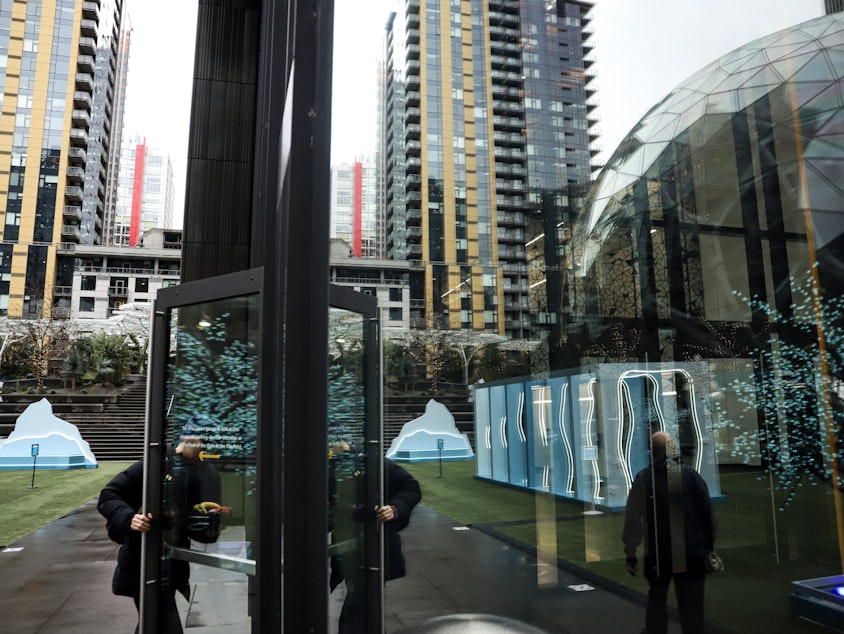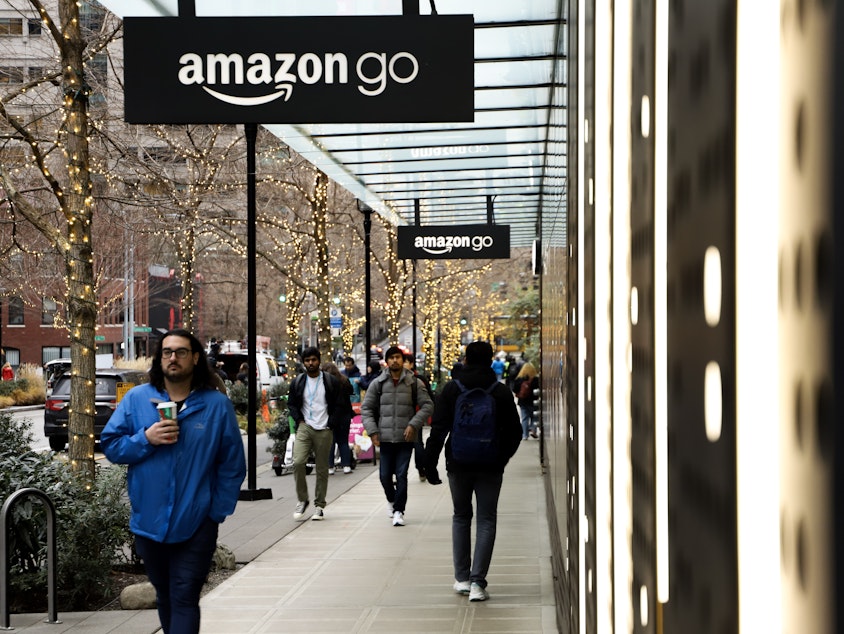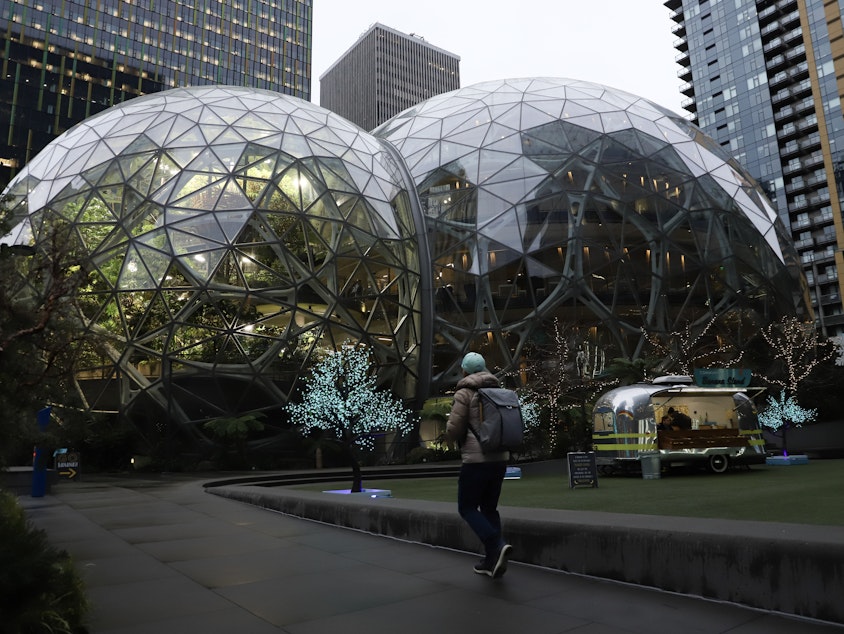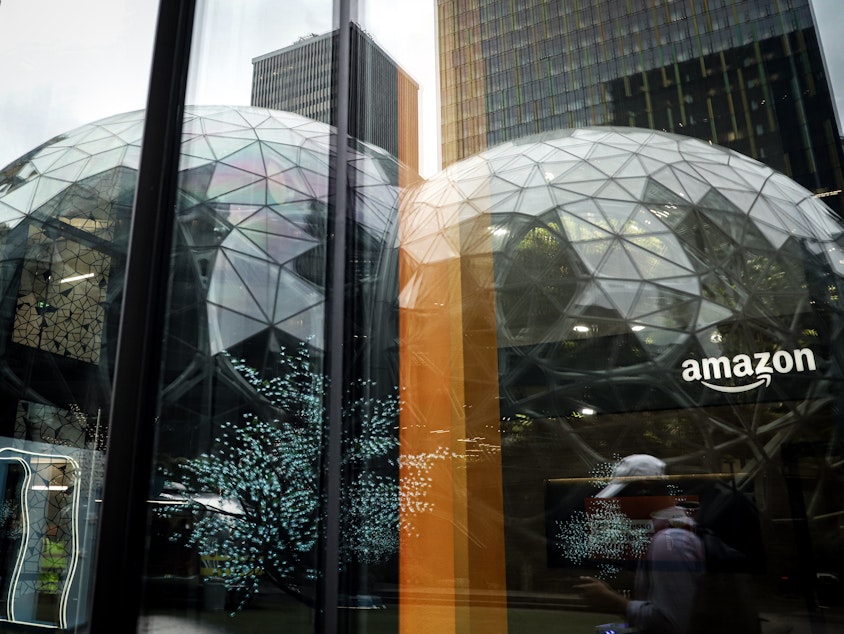Culture-building or cost-cutting? Amazon's return-to-office order raises questions, fears

Joseph has relocated to another state twice in the two years he’s worked for Amazon. He asked that we only use his middle name, fearing professional repercussions for criticizing his employer publicly.
Amazon has been asking employees like him to move to “hub cities” so that they can start coming into the office every day under a so-called "return to office" policy that takes effect Thursday.
RELATED: Amazon announces 5-day return-to-office plan for most employees
The change makes Amazon the largest private employer to roll back its pandemic-era work-from-home policy. It’s been five years since Covid upended white collar work. The majority of workers who can work from home still do, at least some of the time.

As Amazon becomes one of the most high-profile companies to buck that trend, experts are watching to see if it will become a bellwether.
On the first day of the new policy outside Amazon's iconic Spheres in downtown Seattle, some workers were optimistic about the change.
Marc Lobree, who manages relationships between Amazon and other tech companies, said returning to the office felt like his "civic duty" to help revive Seattle's downtown.
"Through Covid we all retracted in our own little spaces, which makes sense," Lobree said. "But we're in a thriving economy that requires an exchange of economic goods and transactions between all of us in order to keep the fire going."
That enthusiasm was echoed by downtown businesses that rely on Amazon workers to stay afloat.
But not all Amazon employees were thrilled with the return-to-office requirement.
RELATED: Hear a longer version of this conversation on KUOW's economy podcast, Booming:
In an email reviewed by KUOW, Amazon gave Joseph an ultimatum. If he couldn’t move to Seattle, his last day would be Nov. 22.
He decided to move.
On a sunny December day, Joseph sat down at the dining room table of his new Seattle-area home, surrounded by boxes, to talk about how Amazon’s return-to-office policy has affected him. He said that being asked to work from the office full time is a greater burden than being asked to move to a new time zone. Joseph says his ADHD and autism make it difficult to be in an open-concept office every day.
“I have developed coping mechanisms over the years, so it's not like I can't deal with social interaction, but five days a week, every week a year, for the rest of your life, that's where it starts to be a problem,” he said.
RELATED: Could a return of workers to downtown offices rescue Seattle’s ailing budget?
Sponsored

Amazon declined an interview request for this story, but shared a statement via email.
“We understand that this is going to be a transition and we’re working with our employees to make it as easy as possible,” said Amazon spokesperson Margaret Callahan. “We continue to believe that the advantages of being together in the office are significant. When in-person accommodations are needed, we’ll provide them, and in some cases, offer an exception to working from the office.”
Amazon CEO Andy Jassy announced the five-day in-office policy in September, 10 paragraphs into a memo about flattening the organization and reducing middle managers.
“We’ve observed that it’s easier for our teammates to learn, model, practice, and strengthen our culture; collaborating, brainstorming, and inventing are simpler and more effective; teaching and learning from one another are more seamless; and, teams tend to be better connected to one another,” Jassy said in the public letter to employees.
As an early career data scientist at Amazon, Sam Rainier sees the value of more in-person mentorship.
Sponsored
“When I started all-remote there were a couple people on the team that were senior level, they had founded the team, and they're obviously these go to people for information,” he said. “But I still felt like it was very daunting to poke my head in their office virtually and say, ‘Hey, do you have some time?’”
Rainier thinks being in the office more could solve that problem for some employees, but not for him.
“That person is still virtual for me,” he said. His team is distributed across Amazon hubs, so meetings are still happening online. Still Rainier says he’s willing to comply with the policy.
RELATED: Amazon faces multiple strikes as union targets holiday shopping rush

Not everyone feels the same.
KUOW talked to 10 Amazon employees for this story and nearly all of them were critical of the return-to-office policy.
Some, like Joseph, worry their disabilities will not be sufficiently accommodated. Others rely on flexibility to care for young children and aging parents.
Many said Amazon has not provided sufficient data or evidence that the policy is good for business. And several said they’ve already started looking for a new job.
Some experts think that attrition is a feature of the policy, not a bug.
“Amazon hired very aggressively in 2021-22 with the rebound from the pandemic and suddenly discovered they just had too many employees,” said Nick Bloom, a Stanford economist who studies the workplace. "And so, option one is to fire a bunch of folks, but you have to pay them severance pay. It's expensive. People get very angry. So option two, I think their view was, ‘Why don't we call everyone back to the office for five days a week?' Probably about 10% of people won't like it. They live too far away. They'll quit on us and that will save us a lot of money.’”
Sponsored
Amazon says it's inaccurate to claim the return-to-office policy is a backdoor layoff. Jassy also denied it at a recent all-hands meeting, in comments shared by the company’s PR team.
“This was not a cost play for us,” Jassy said. “This is very much about our culture and strengthening our culture."
But Bloom’s research has shown that employers can achieve those benefits by requiring workers to come in three or four days a week, with diminishing returns after that.
“That fifth day doesn't get you anything," he said. "There's been many studies now showing that actually you don't get any productivity impact or improvement from that. What you get instead is [higher] quit rates.”
RELATED: Amazon manipulated injury data to make warehouses appear safer, a Senate probe finds
Bloom thinks Amazon is swimming against an unstoppable current. He expects working from home to continue to increase as technology advances. But, he will be watching to see if some companies follow suit, simply because of Amazon’s reputation.
“They are a widely admired and followed company,” he said. “Amazon is famous for being extremely well managed, very data focused, very successful. They are the 800-pound gorilla that smashes everything in their path. No one stands in front of Amazon. So if they have a five-day return to office, it's very tempting for many other CEOs, execs to follow.”
EDITOR'S NOTE: This story was updated Thursday, Jan. 2, 2025, to include the perspective of Amazon workers returning to the office and to include photos from Seattle documenting the first day of the company's return-to-work requirement.




